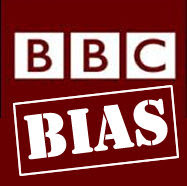 UPDATE: Tues 20 October 2009
UPDATE: Tues 20 October 2009The BBC are at it again with their subtle bias: "His signature is now virtually the last hurdle before full ratification of the treaty, which is aimed at streamlining the 27-member EU's decision making." A completely one-sided presentation of the treaty's purpose, given in the BBC's supposedly non-partisan voice, and therefore not fairly balanced by the critical quote from the clearly partisan Czech President that follows it.
--------------------------------------------------------------
A flurry of BBC reports surrounding the recent referendum in Ireland has once again displayed the continued pro-EU bias in the BBC's supposedly 'neutral' and 'impartial' output.
BBC stories about the referendum result, discussing what the Conservatives now intend to do about the Lisbon Treaty and on questions about Czech ratification were all peppered with the subtly biased descriptive statements about the Treaty that have featured in many other BBC articles on the subject in recent years.
The BBC kicks off its latest festival of euro bias just a few paragraphs into the piece reporting the result of the Irish vote, by declaring: "The treaty - which is aimed at streamlining decision-making in the 27-nation bloc - ... "
This is of course an abjectly pro-EU 'government line' description of the purpose of the treaty, with which the treaty's critics would profoundly disagree.
We, for example, would argue that the treaty's only purpose is to continue the EU political integration project, by transferring more decision-making powers from national governments and parliaments to undemocratic EU institutions. And to establish for the EU further symbols of the statehood to which it so clearly aspires.
Yet there, presented as the view of the 'neutral' BBC, the unalloyed government view sits. Completely unqualified and unattributed, supposedly a statement of impartial fact.
Credibility clash
Nearer the bottom of the same article appears a second, similarly biased statement of BBC 'fact'.
"The treaty is intended to make EU institutions better suited to the enlarged bloc of 27", the article intones. Another 'government line'.
At least, after this second biased claim, albeit right down at the bottom of the piece, the views of "opponents" are finally given a short airing.
But still that is unsatisfactory, as such opponents are being set against not the opinions of the EU, the government or some campaign group whose broad stance can be determined and their view put in context. But the view of the supposedly neutral BBC.
That credibility clash is a totally unfair one on the treaty's critics.
More bias
The same problem crops up in the BBC article questioning the Tory position on the treaty after the Irish vote.
Again, only a few paragraphs down, it is written that the treaty "aims to strengthen EU decision-making processes by using a majority vote, not unanimity, for more decisions."
Yet another completely pro-EU interpretation of the treaty's aims, unattributed to any known EU-friendly voices, and unaccompanied by any balanced mention of the consequent weakening of national democratic structures that more EU majority voting entails.
No mention, for example, of how majority voting allows entire governments and parliaments to be overridden by EU institutions and laws imposed on countries regardless of domestic popular or even political opinion.
Are we really expected to imagine that the BBC considers such trifling details of little relevance or interest to readers? Because if not, what other conclusion is there to draw but that of unthinking or deliberate bias?
No critical voices about the treaty are featured in this article at all. But two quotes - from Gordon Brown and Irish PM Brian Cowen - are included in effusive praise of the treaty.
Third time unlucky
And finally, in an article about the Czech ratification of the treaty, the BBC states without qualification as if it were indisputable fact: "The treaty aims to streamline EU decision-making and boost the EU's role globally."
"Opponents" do get a look-in this time, using the same non-specific line as previously that: "Opponents see Lisbon as part of a federalist agenda that threatens national sovereignty."
No detail there about specific negative treaty provisions that might actually make people question the treaty's merits. Heaven forbid!
Guilty verdict
Back in 2005, in a report the BBC itself commissioned, the Corporation was deemed guilty of an institutional pro-EU bias.
Probably worse than any deliberate bias, of which the BBC was cleared, the report concluded that the problem was institutional because the broadcaster “suffers from certain forms of cultural and unintentionial bias”.
It put this down to BBC journalists often being ignorant about how the EU works.
But a far greater contributor to the problem seems to be the internal perpetuation of an inaccurate cultural view of the EU's critics - a view that is too heavily defined by crude labels used by the government and other EU supporters to try to discredit their opponents.
The most commonly broadcast manifestation of this cultural fault is frequent use of the term "anti-Europeans" to describe EU-critics, with all the cultural antipathy to 'Europe' that term misleadingly injects into what is in reality a political debate about governing structures.
Sadly, on recent form, it seems very little progress has been made in the intervening years to restore the BBC's reputation for impartiality.



No comments:
Post a Comment